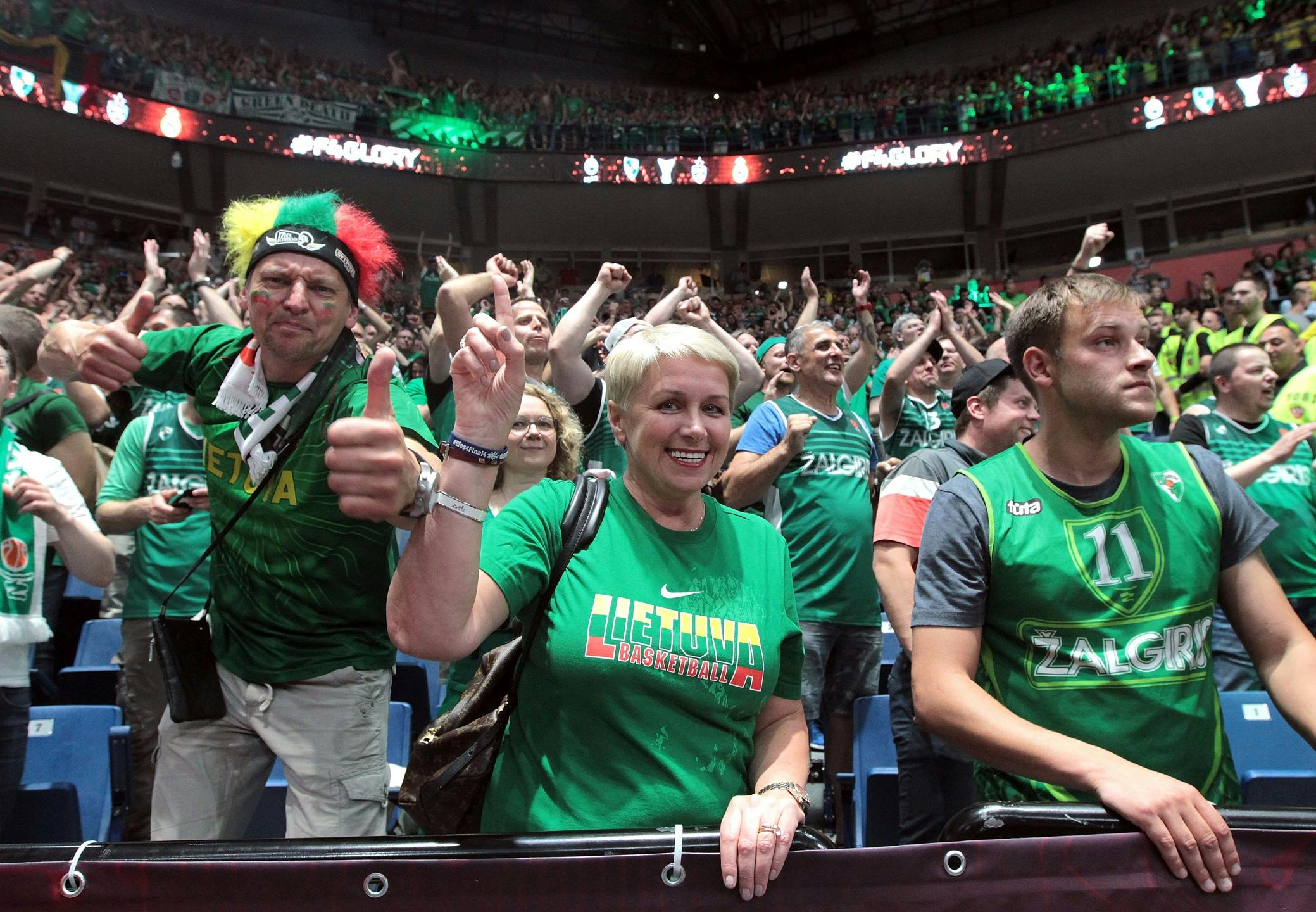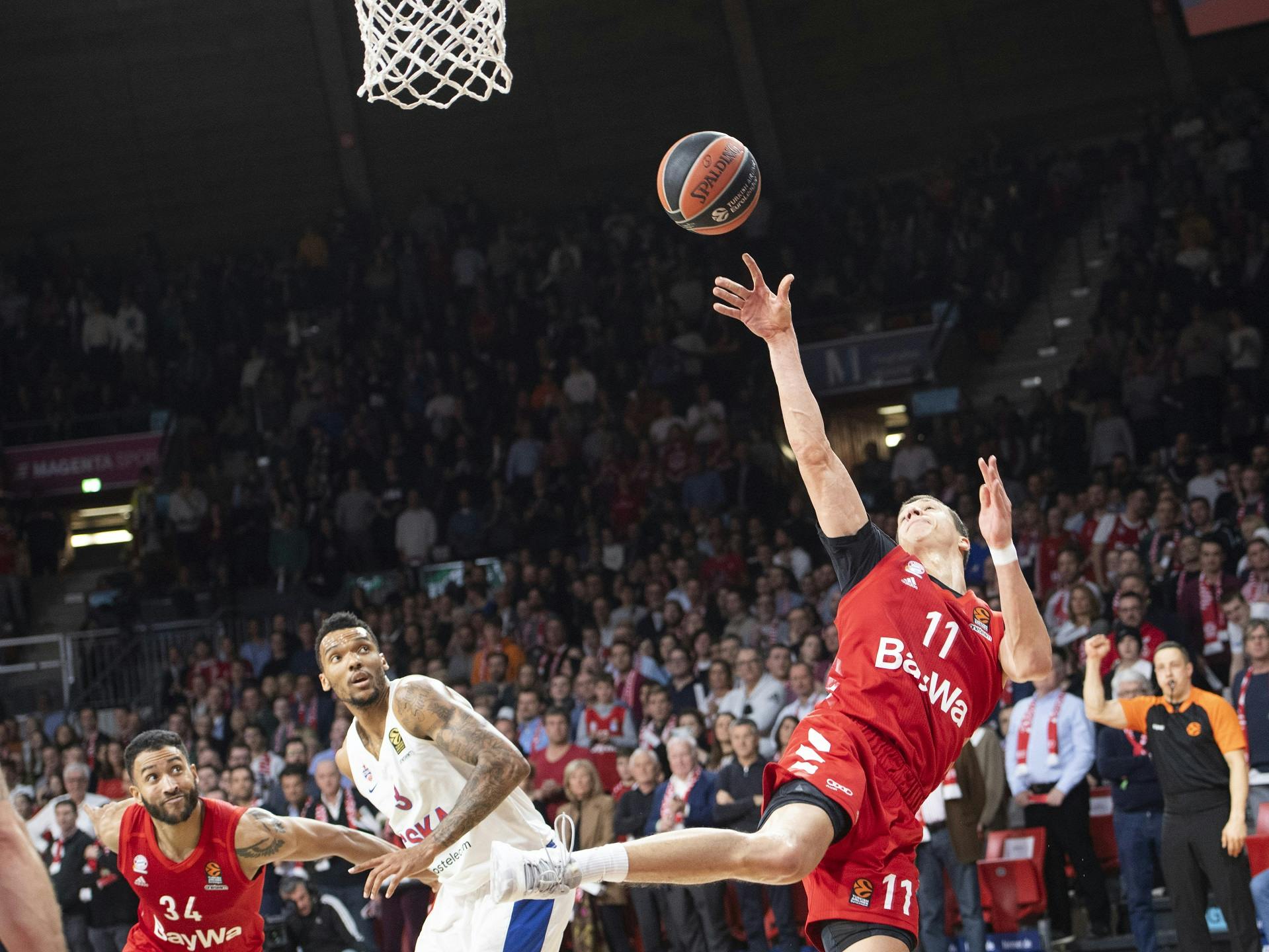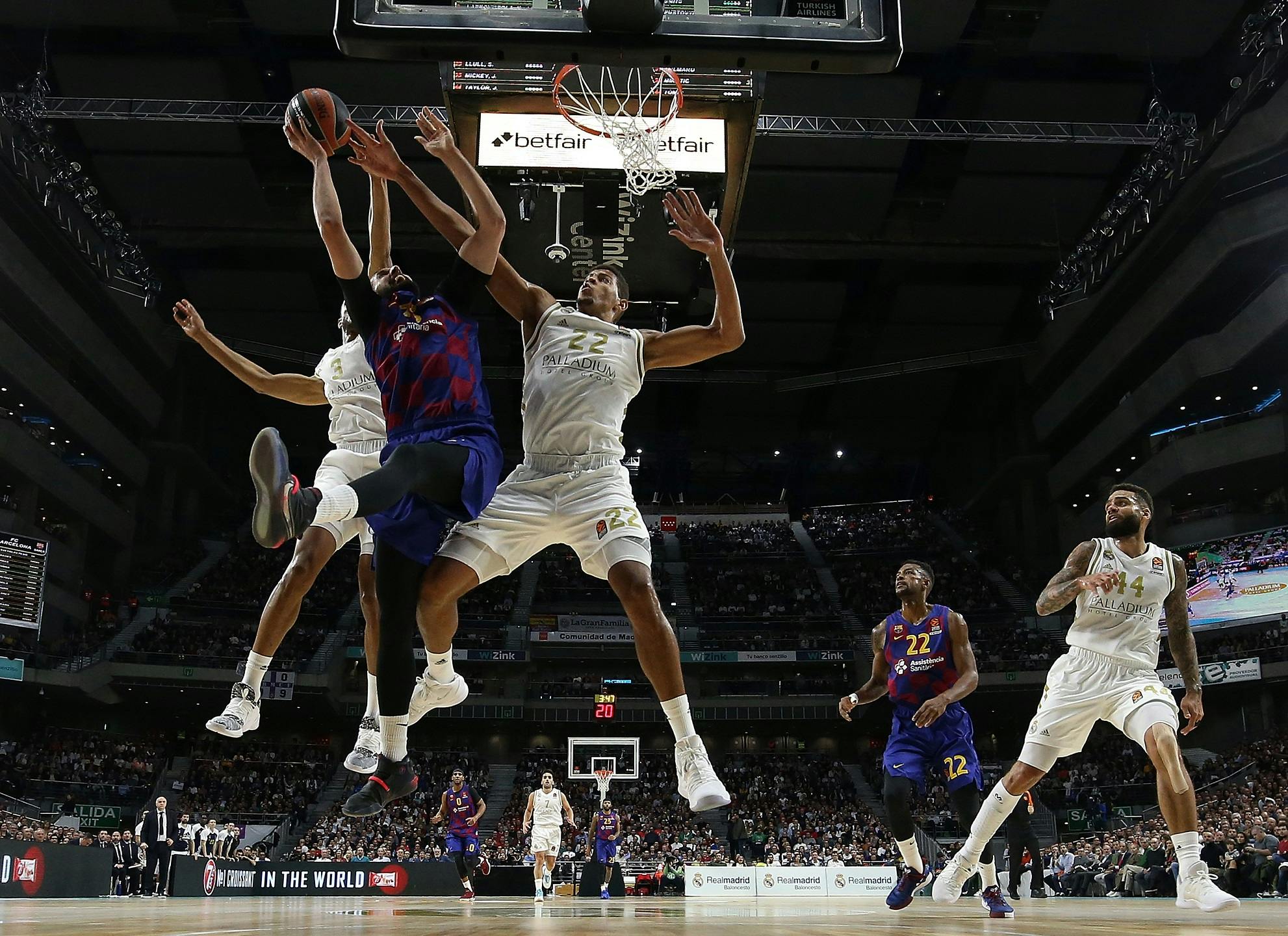Euroleague Basketball is famed for its fierce on-court rivalries, but the business relationships being formed away from the court are quietly driving the competition and its clubs to new commercial heights.
EuroLeague’s Business Operations and Club Services (BOCS) programme has been helping Europe’s elite basketball clubs transform all aspects of their off-court activities since October 2017. BOCS was born out of Euroleague’s Ticketing Programme, which began in 2012 as a means for clubs to grow their matchday revenue.
BOCS has expanded that remit to become a year-round knowledge-sharing platform through which clubs receive advice on sponsorship, ticketing, digital, merchandising and licensing, fan engagement and their organisational structure, as well as how to implement and adapt modern business practices for each club’s unique situation.
Inspired by the NBA’s Team Marketing and Business Operations (TMBO), BOCS brings rival clubs together as business partners, giving them space to grow and learn from one another’s business success stories. The goal is to help clubs recognise their high ceiling for growth and move toward becoming sustainable business, without having to rely on financial contributions either from wealthy individual shareholders or affiliated football clubs, as well as to grow the independence of the off-the-court business from the team’s on-the-court performance.
“As in any other company, the collaboration between stakeholders is a key piece for the development and growth of Euroleague Basketball, moreover when your shareholders are an integral part of your product. Our reality is that our teams are rivals on the court but partners off the court and providing them a stable collaboration framework was a natural step forward. Each club brings to the table different experiences and expertise based on their local culture and ecosystem, which can be adapted to accomplish both collective and individual growth,” says Roser Queraltó, chief business officer at Euroleague Basketball.
Roser leads all business operations of the League while Luca Scafati, director of business operations at Euroleague Basketball, runs a team of both internal and external business specialists’ advisors providing added value and expertise to the program and organically to the clubs. All of them are fanatical about helping EuroLeague clubs improve their ability to generate revenue. Recently, they have been seeing the fruits of almost a decade’s labour.

Attendance
Euroleague Basketball saw its clubs reach an average 75 per cent arena occupancy (attendance v capacity) across the league during the 2018-19 season, up from 72 per cent in 2016-17. In terms of attendance growth, FC Barcelona (17 per cent), Žalgiris Kaunas (28 per cent) and Anadolu Efes (83 per cent) have enjoyed massive increases from 2016-17 to 2018-19, with Panathinaikos and Real Madrid also boosting matchday revenue by more than a third in that time.
Part of that attendance growth is a direct result of clubs’ transforming their organisational structure and applying new marketing, ticketing and fan engagement techniques from their time as part of BOCS.
“Even before BOCS got its name, Euroleague Basketball was encouraging clubs to increase their action on this front, and they still do now,” says Unė Marija Jurkštaitė, chief business officer at Lithuanian EuroLeague team Žalgiris Kaunas. Jurkštaitė says that increased financial support from Žalgiris general manager Paulius Motiejūnas has enabled her team to deliver an incredible 221-per-cent increase in matchday revenue from 2014-15 to 2018-19.
“One of our main initiatives is to empower the correct people within the clubs to senior roles, such as the creation of Chief Business Officer roles across all clubs,” Scafati says. “Clubs are now empowering the right people to grow their departments and hire new people to do the actual operational work. That’s the main contributing factor behind the growth – investment in the human resources that enables a strategy to grow.”
For Žalgiris, that strategy revolved around targeted messaging to either casual or potential fans of the club, ensuring those people knew that attending a EuroLeague game at the arena was an affordable, accessible, premium entertainment option.
“This season, we have 267 different action points to attract new fans to the arena and 76 different action points to maintain the loyal customers we already have,” says Jurkštaitė. “Now, around 10 per cent of the fans attending a Žalgiris EuroLeague game are new fans – that’s around 1,500 new people coming to the arena for each EuroLeague game.” It isn’t just Žalgiris experiencing huge attendance growth after putting BOCS advice into practice.
Scafati cites the case of Olimpia Milano, which has transformed its matchday revenue over the past five seasons and now consistently averages close to 10,000 spectators for each EuroLeague game. Before receiving advice from BOCS, Olimpia would distribute thousands of free tickets to ensure matches were well attended. BOCS recommended that Olimpia increased its marketing effort and clearly communicated to fans that EuroLeague games were a premium experience.
“We made a direct recommendation to Olimpia Milano’s president that the club had to start behaving like a company, and that they needed fan support in order to do so,” Scafati says. “It was a success that we managed to give the message of financial sustainability to the very top of the club, and this is our task more generally: to change the overall mentality at each club and recommend intense focus on economic factors and sustainability, not just sport. It’s much more effective when that message is coming from the top down.”

Transforming mentality: entertainment over sport
Aside from being the premier basketball competition in Europe, EuroLeague is famous for the incredible atmospheres generated by its fans. Several EuroLeague clubs have hardcore, passionate fanbases that bring noise and colour to the entertainment on court, providing clubs with a unique selling point. Clubs are beginning to understand that attending a EuroLeague game is an incredibly powerful experience, regardless of the result on court.
“We started to communicate a lot more about the emotions we feel in our arena and about our atmosphere. That is our main selling point, not the game itself,” says Jurkštaitė. “It’s about how we feel in here; about how you become a part of the community. You can’t experience that through the TV.”
BOCS is encouraging clubs to take advantage of the natural resources they have available to them, while also leading a shift toward offering a complete entertainment experience on matchday. Rather than relying solely on basketball to attract fans to the arena, BOCS wants clubs to create a sustainable, mainstream entertainment product that offers a positive experience each time their visit the arena.
Scafati is particularly keen to stress the importance of creating positive experiences for casual or first-time fans. “There’s a lot of ways to spend free time, and free time is limited,” he says. “We offer an elite basketball product, but so far we have attracted what we call natural demand: people that come to our games because they want to see the game itself. We are telling the clubs that although we have our niche of hardcore fans, we have to find people that come to the arena for different reasons.”
After taking on the recommendations from BOCS, Jurkštaitė put this into practice at Žalgiris in her own way. “We really wanted to step away from relying on winning to attract people to the games and really worked on making people come for a good time, not just to see Žalgiris win. We changed our vocabulary about how we invite people to the games. We no longer say things like ‘come and help us win’ and stuff like this. We don’t talk about it at all.”
She continued: “What we say now is ‘come and be a part of the community, come and have a good time, feel the national spirit’. And so last season, we started seeing that even if we lose badly, people will still be standing, clapping and creating a great mood in the arena. It’s been a huge accomplishment for us.”
Aside from marketing their unique atmospheres, EuroLeague clubs are investing more in live entertainment during games, better food and beverages, as well as providing on-site activities for children and young adults. For clubs less able to rely on atmosphere or community, Scafati believes creating a 360-degree entertainment experience will be essential to create sustainable matchday revenue.
“We’re telling the clubs to create a product that goes beyond the game on court to attract customers. There are many things that can be done on a game day to make the game become an experience, not just a game, and casual fans are excellent prospective clients because they are not so affected by the on-court performance.
“Sometimes the hardcore fans stop going to the arena if the team is playing badly or for other reasons outside of the team’s control. On the other hand, we have people who go to the arena for other reasons, who aren’t so worried if the team’s losing or winning.”
In order to improve the way clubs are welcoming casual fans to their arenas, Euroleague Basketball has begun a Customer Experience Training Programme to help arena staff enhance the fan experience and improve monetisation options for clubs. Euroleague has begun assessing the quality of the customer journey in all EuroLeague arenas in order to give direct feedback on how clubs are improving on this front.
In addition, clubs are being encouraged and supported in their digital transformation efforts, helping them reach a wider, more casual audience. Euroleague Basketball has created a Digital Transformation Fund to support all clubs in these efforts.

Understanding different perspectives
While clubs can learn a lot from their time spent at BOCS meetings and events, they are also able to learn from one another.
Some EuroLeague clubs are historic, standalone basketball clubs like Žalgiris and Baskonia, while many others like Real Madrid, FC Barcelona and Fenerbahçe are part of multi-sport clubs that benefit from the success of their football teams.
Each club is unique, but many clubs face similar challenges. It can be difficult for basketball teams to emerge from the shadow of a giant football club that shares their name, or to inject a new lease of life into a historic brand.
“Participating in the EuroLeague is not only a matter of facing the best teams of the continent on a regular basis but also requires a change in the mentality to run a team. EuroLeague teams are in daily contact with the different areas of Euroleague Basketball, but very few of the discussions are about the game but to make the League more relevant for everyone, stakeholders, players, fans… we need to grow in every simple vertical revenue stream the clubs have. Here is where BOCS is and will even be more relevant for the clubs and the League itself,” says Queraltó.
At BOCS, clubs can come together and find solutions to problems they often share. While FC Barcelona and Bayern Munich are rivals on the court, they frequently meet away from the court to share knowledge and ideas. Adrian Sarmiento, chief business officer at FC Bayern Munich, says these meetings have been invaluable.
“We had some very good and interesting meetings over the last few years with FC Barcelona, who really wanted to understand how we run our basketball business; whether we separate it from football or whether it works alongside football; where the synergies are, how we can work together,” Sarmiento says.
“It is very, very helpful to have these discussions and to be part of the BOCS programme. It helps us bring in different perspectives from different markets, from different clubs and different brands. Everything is becoming more measurable, and more transparent.”
This philosophy of sharing reached new heights at the end of 2018 with the creation of the Chief Business Officers Board. The CBO Board meets regularly to share and grow from their learnings as part of BOCS, enabling them to identify areas of collective and individual growth as a group. The creation of this board is one of many examples of EuroLeague clubs professionalising and becoming business partners away from the court. It’s a far cry from how things used to be.
Scafati says: “In the early BOCS meetings, we showed them a presentation and one of the slides said: ‘We are rivals on the court but we are business partners away from it’. It’s not easy for some clubs to understand. It’s a shift in mentality for them.”
Scafati is particularly pleased at how Bayern Munich, which received a two-year EuroLeague wildcard at the beginning of 2018-19, has recognised the power of sharing knowledge with fellow clubs.
“Bayern Munich are on the CBO Board and at the first meeting, Adrian Sarmiento presented their organisational structure. We were able to take these ideas and create a league-wide example based on that presentation. It will become a recommended organisational chart for all EuroLeague clubs.”
As EuroLeague clubs professionalise and learn from one another, the off-court partnerships will begin to run deeper, allowing for greater collaboration between clubs. For Jurkštaitė and Žalgiris, that process is well under way.
“We all understand that if every club gets more successful, the league gets more successful. That means we can all generate more revenue and make more out of our games together. It’s great to meet other clubs and people who do the same thing so you can learn from their successes and losses; what works, what doesn’t work. It’s always great to share and we can always ask for advice.”